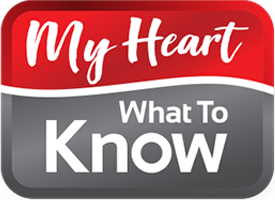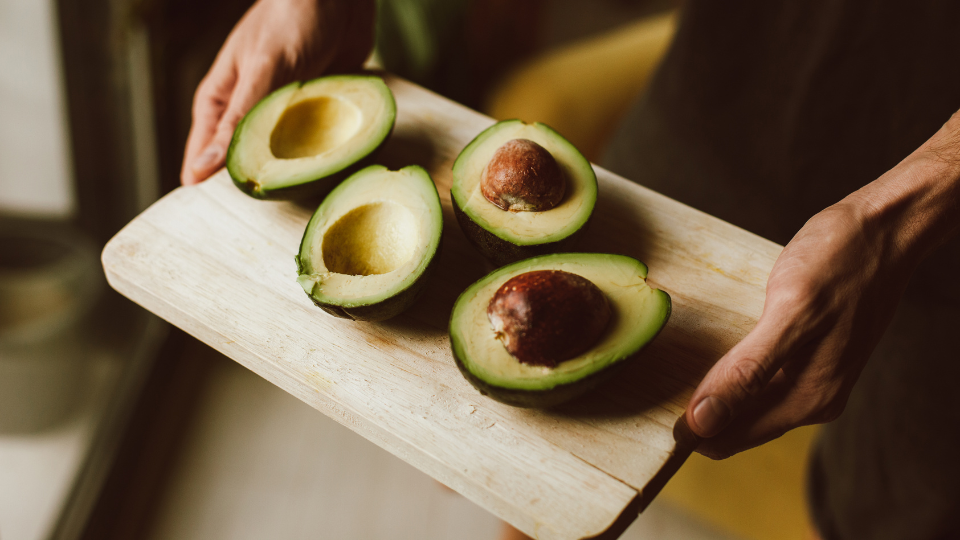By Carol Holland RD, CBE
There has been a lot of conflicting advice over the years about dietary fat and heart health. For many years, low-fat was considered the best option; then we were told to avoid saturated fat in particular. Lately, high-fat diets are popular – and what’s the deal with trans fats? With all this information coming at us, how do we know what’s best for our heart health?
Well, to borrow a line from Clint Eastwood, let’s think about dietary fat this way:
The Good (unsaturated fat), the BAD (saturated fat), and the UGLY (trans fat).
First, let’s talk about Good fats, also called “unsaturated fats”.
Unsaturated fats have a slightly kinked chemical structure which means they are generally liquid at room temperature (think vegetable oil). Replacing saturated fats with unsaturated fats in your diet will lower your LDL, aka your “bad cholesterol”.
You can find unsaturated fats in liquid oils, such as canola, olive, and avocado oil. Nuts and seeds are also a great source, along with olives and avocado.
Omega-3 fats are a specific type of unsaturated fat that packs a healthy punch. Fish is the best source (as long as it’s not deep-fried), especially salmon, trout and smaller fish like mackerel, herring, sardines and anchovies. Aim to eat fish a few times each week. Fresh, frozen or canned fish are all great! It’s best to include unsaturated fats in your diet every day.
That leaves the bad and the ugly.
Saturated fat used to be painted as the villain when it came to heart-healthy eating.
Eating a lot of foods that are high in saturated fat will raise your LDL over time, so it’s best to not eat too much of these foods.
Saturated fats are found in animal foods like dairy products and red meat, as well as tropical fats like coconut and palm oil. These fats tend to be solid at room temperature (think butter and lard).
Speaking of coconut oil, there has been a lot of hype about it in the last few years. A quick internet search suggests that it’s anti-fungal and anti-microbial; good for your brain and your teeth; and works miracles on your skin and hair.
The claim that coconut oil is heart-healthy stems from its tendency to raise your HDL (“good cholesterol”). While this is a good thing, eating coconut oil will also raise your LDL (bad cholesterol), which is far worse for the heart than the benefit gained by raising the HDL. So the recommendation for now is to stick to using it on our skin and hair, and focus on liquid oils for cooking.
So what about the Ugly?
Trans fats come in two types.
Trans fats are manufactured and added to packaged foods to help keep them shelf-stable. These artificial trans fats will raise our LDL and lower our HDL, which is a double strike against our heart health.
Artificial trans fats are now banned in the United States and Canada, which makes it easy to find food products made without them. When you check the label, it should show that the trans fat content is zero – the best for our heart health.
Trans fats are also found naturally in smaller amounts in foods such as dairy products and meat. They are considered less harmful than industrially produced trans fats but should still be avoided in large quantities as they will also raise the LDL.
So now we know that unsaturated fats are best for our heart health, and should be part of our daily diet through liquid oils, nuts and seeds, avocado and fish.
We also know that saturated fat is less healthy for our heart. Choose unsaturated fats over saturated fats if possible. Saturated fats should be eaten less often and avoided if possible in the daily diet. If required in the diet, limit consumption to only on special occasions.
And artificial trans fats aren’t good for our heart at all, but luckily they’re easy to avoid in North American grocery stores.
So instead of the Good, the Bad and the Ugly, we have the Really Really Good, the Bad, and the Banned.
An important step towards better health for many people is reaching a healthier weight, which can reduce the risk of cardiovascular disease. To find a physician near you who specializes in weight management, click here.
—
All the information provided on this site is for educational purposes only and is not a substitute for professional medical advice, diagnosis, or treatment. My Heart – What To Know is not a healthcare provider or clinic. ALWAYS consult with a qualified healthcare provider regarding any questions you may have about a medical condition. Never disregard professional medical advice or delay in seeking it because of something you have read on this website. If you think you may have a medical emergency, call 911 or go to the nearest emergency room immediately. No physician-patient relationship is created by this website or its use.
This article was sponsored by Novo Nordisk Canada. All content is created independently by My Heart – What To Know with no influence from Novo Nordisk.

